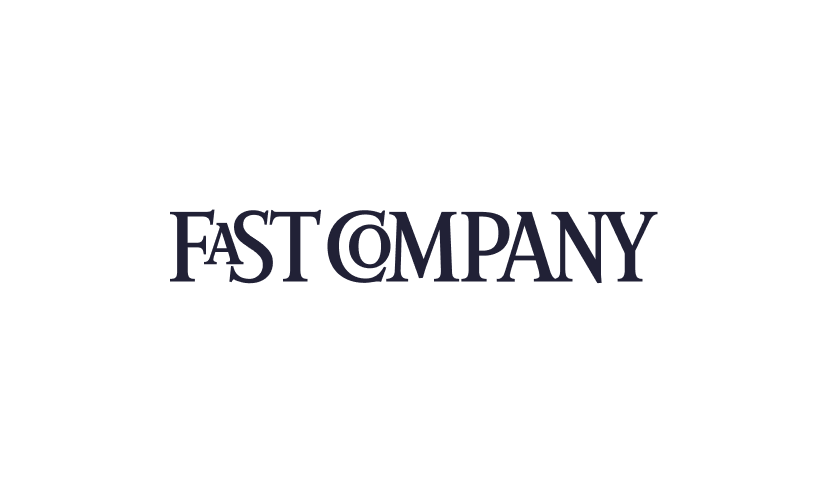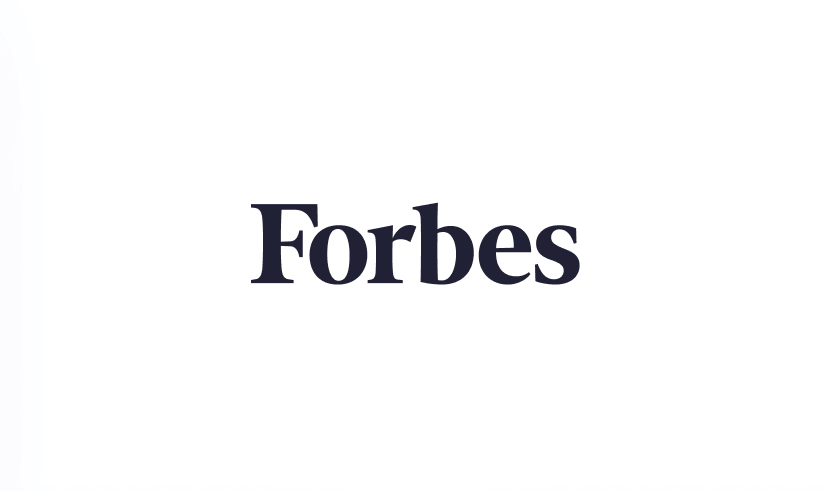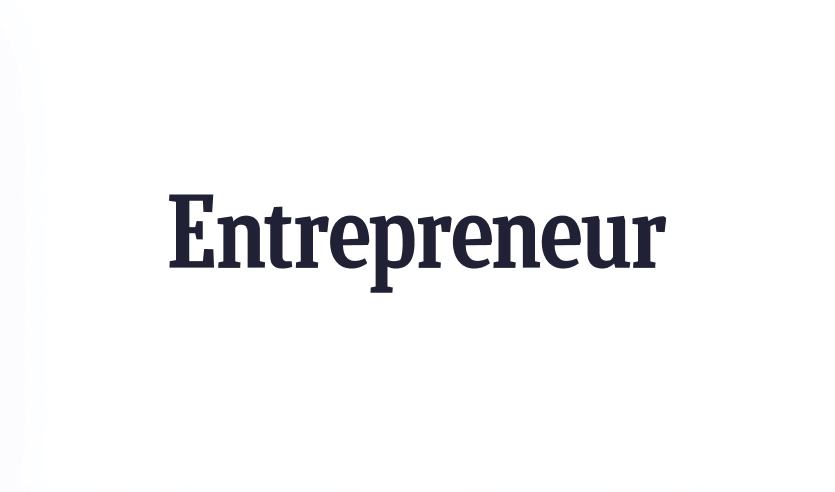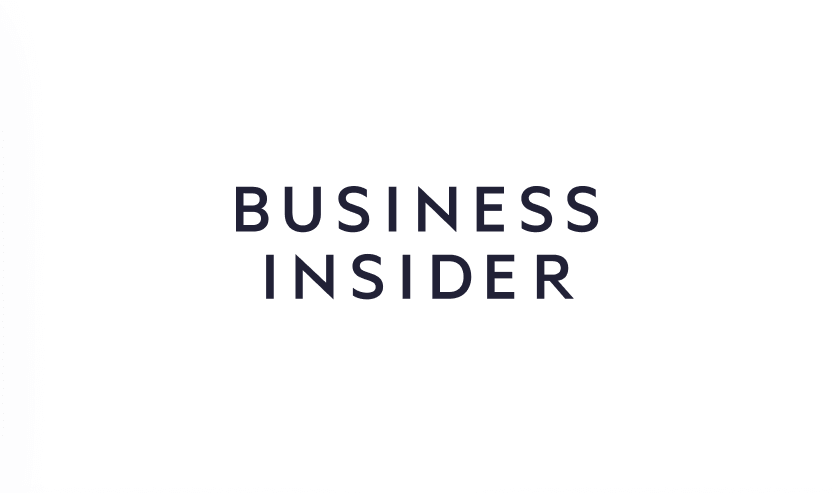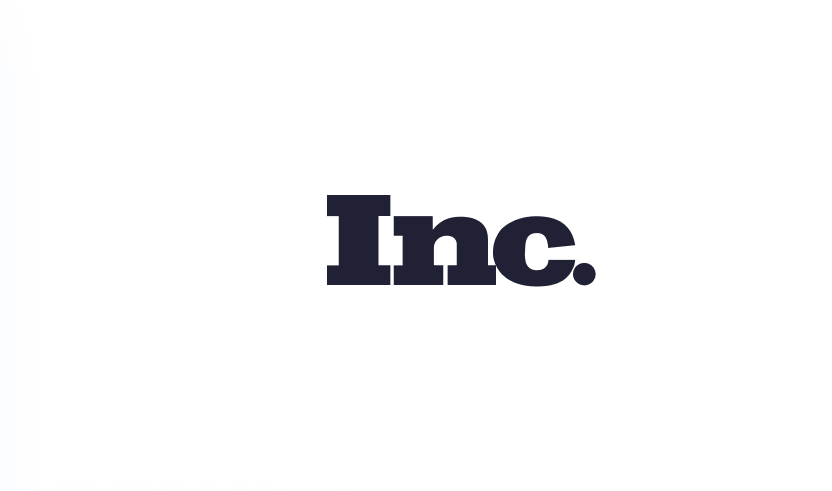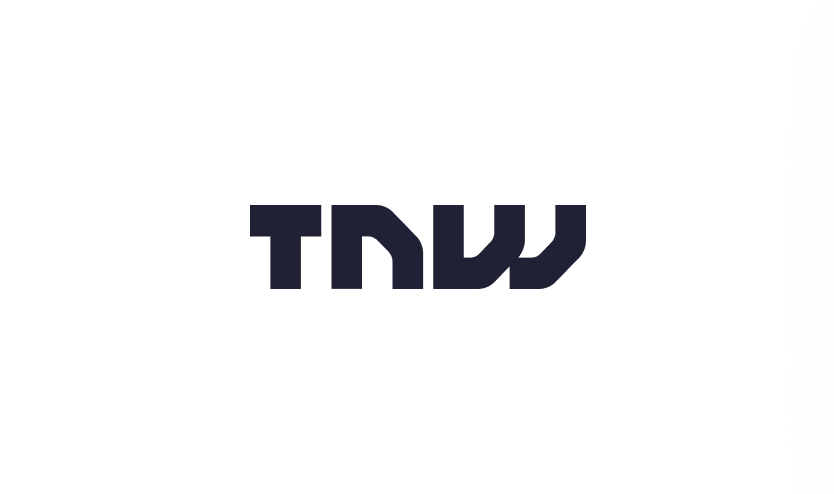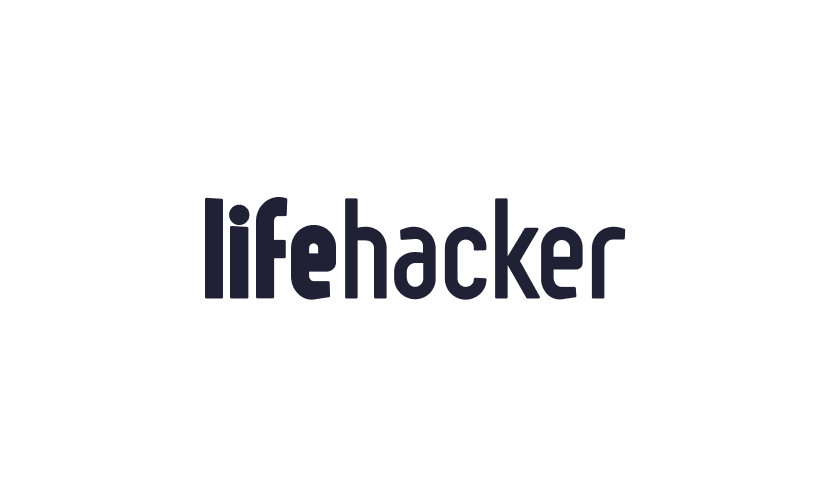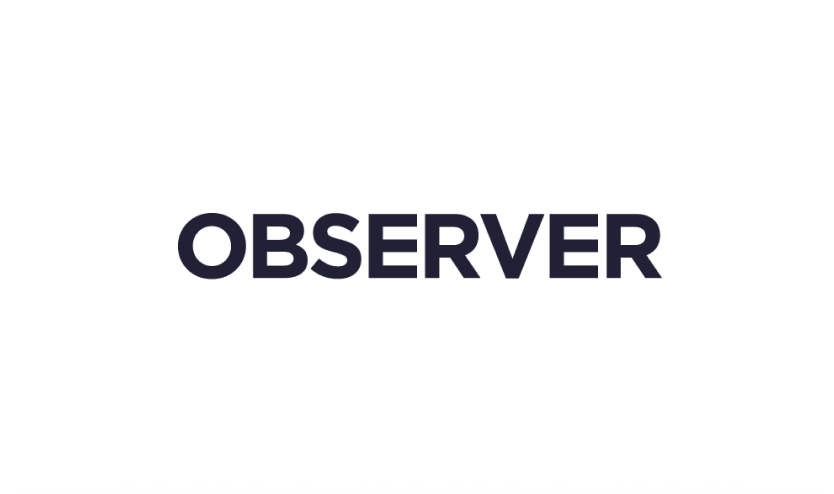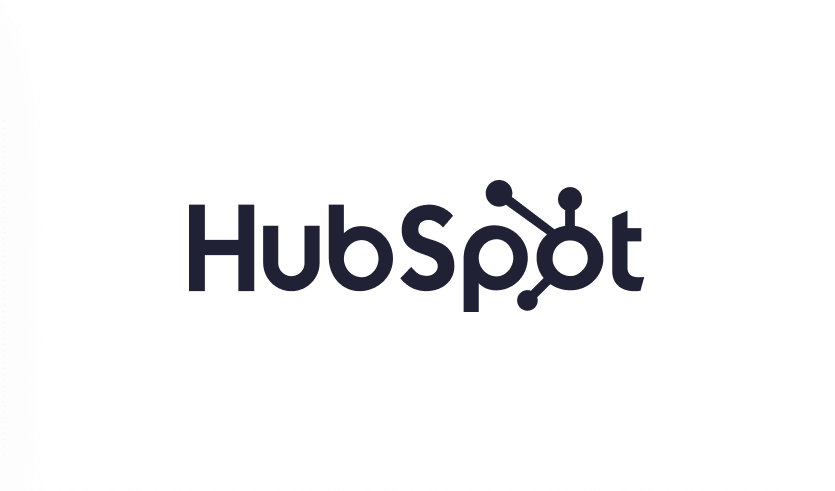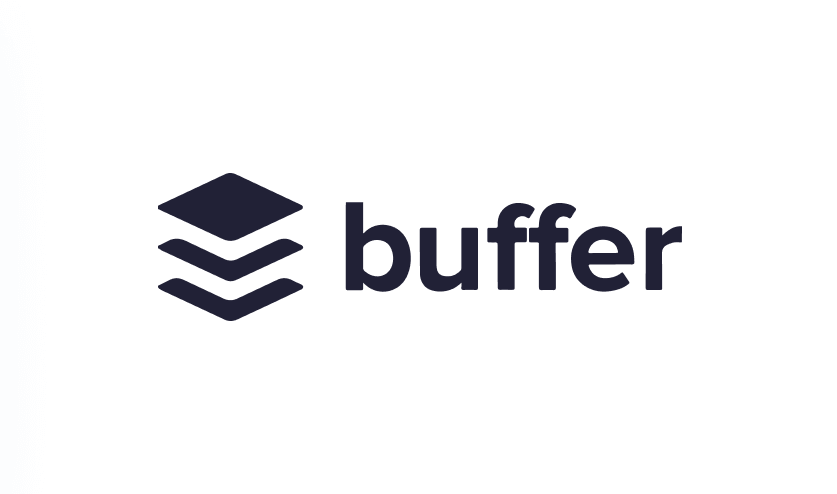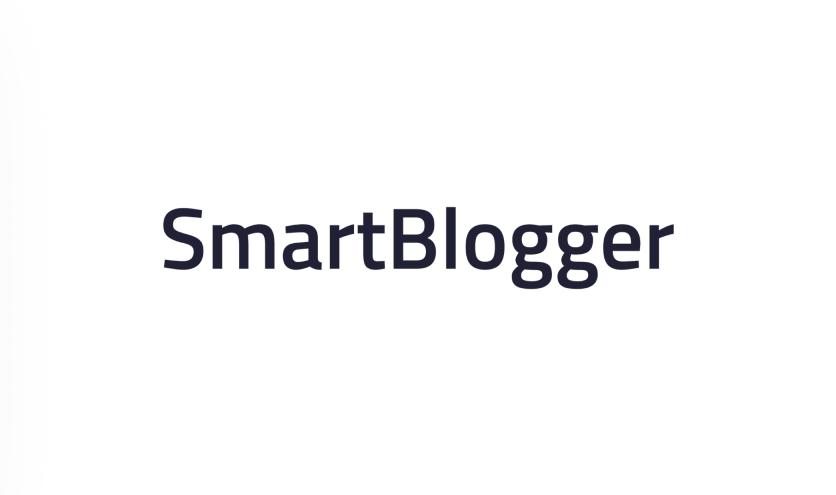Email Template Examples: 30+ Ready-to-Use Templates That Drive Opens, Clicks, and Conversions
Email templates save marketers 3-5 hours per campaign while maintaining consistency and brand quality. Yet 68% of email marketers start from scratch every time, wasting resources and missing opportunities for systematic optimization.
The difference between email templates that drive results and those that sit unused comes down to strategic structure, clear copywriting frameworks, and understanding that great templates are starting points for personalization, not rigid constraints.
I'm Chase Dimond, and over my career managing $200+ million in eCommerce email campaigns for 7-figure, 8-figure, and 9-figure brands, I've developed email template systems that reduce campaign creation time by 60-70% while improving performance by 30-40%. The best email templates don't limit creativity—they provide proven frameworks that teams can customize for their specific needs.
In this guide, I'll share 30+ email template examples across every major campaign type, break down the psychology of effective template structure, and show you how to build a template library that accelerates your email marketing. Plus, I'll reveal how top brands use competitive intelligence tools like Inboox.ai to analyze competitor templates and create frameworks that outperform their market.
Table of Contents
What Makes Effective Email Templates?
The Chase Dimond Template Framework
Welcome Email Templates
Promotional Email Templates
Newsletter Email Templates
Abandoned Cart Email Templates
Transactional Email Templates
Re-engagement Email Templates
Product Launch Email Templates
Event Email Templates
Survey and Feedback Email Templates
Building Your Template Library
Common Template Mistakes
FAQ: Email Template Best Practices
What Makes Effective Email Templates?
Email templates are pre-designed structures that provide consistent formatting, messaging frameworks, and design elements across campaigns. They're not rigid final products—they're strategic starting points that teams customize for specific sends.
What email templates include:
Subject line formulas
Preheader text structure
Body copy framework
CTA placement and language
Visual hierarchy
Design elements (headers, footers, spacing)
Personalization tokens
Why Email Templates Are Critical
Business impact:
Time savings: Reduce campaign creation time by 60-70%
Consistency: Maintain brand voice and quality across sends
Performance: Proven structures increase conversion by 30-40%
Scalability: Teams can execute more campaigns with same resources
Testing: Systematic templates enable better A/B testing
Onboarding: New team members productive faster
Throughout my work with 7-figure, 8-figure, and 9-figure eCommerce brands, I've found that brands with comprehensive template libraries send 2-3x more campaigns while maintaining higher quality and performance standards.
The Psychology of Effective Templates
Key psychological principles:
1. Decision Fatigue Reduction: Templates eliminate unnecessary decisions
Reduce cognitive load for creators
Focus energy on strategic customization
Faster execution without quality loss
2. Consistency Builds Trust: Familiar structure increases engagement
Subscribers recognize your emails
Predictable format reduces friction
Brand consistency strengthens identity
3. Proven Frameworks Reduce Risk: Templates based on performance data
Start with what works
Systematic optimization over time
Less guesswork, more results
4. Constraints Drive Creativity: Frameworks enable better customization
Clear structure focuses creativity
Know what to keep vs. change
Faster iteration and testing
Chase's Template Principle: "Great templates are 70% structure and 30% customization. They provide proven frameworks while leaving room for the specific message, offer, and personality that makes each send unique."
The Chase Dimond Template Framework
After building template systems for dozens of high-performance brands, I've developed a systematic approach:
The 5-Layer Template System
Layer 1: Campaign Type Templates
Welcome sequences
Promotional campaigns
Newsletters
Transactional messages
Lifecycle automations
Layer 2: Messaging Frameworks
Subject line formulas
Opening hooks
Body structure
CTA language
Closing patterns
Layer 3: Design Elements
Header styles
Typography hierarchy
Color schemes
Image placement
Button designs
Layer 4: Personalization Tokens
Name fields
Behavioral triggers
Product recommendations
Location data
Purchase history
Layer 5: Testing Variations
Subject line alternatives
CTA variations
Layout options
Offer formats
Urgency tactics
The Chase Dimond Template ROI Formula: Template ROI = (Time Saved × Hourly Cost) + (Performance Improvement × Campaign Volume). Great templates pay for themselves within 5-10 uses through time savings alone, before counting performance gains.
Template Customization Strategy
What to keep consistent (the 70%):
Overall structure and flow
Visual hierarchy
Brand voice and tone
Design elements
CTA placement
Footer information
What to customize (the 30%):
Specific offer or message
Product imagery
Personalization details
Urgency elements
Seasonal references
Audience-specific language
Welcome Email Templates
Welcome emails drive the highest engagement of any campaign type.
Template 1: The Direct Value Welcome
Use case: Immediate value delivery with discount
Template structure:
━━━━━━━━━━━━━━━━━━━━━━━━
Subject: Welcome to [Brand]! Here's [X]% off 🎉
Preheader: Your exclusive new customer discount inside
━━━━━━━━━━━━━━━━━━━━━━━━
Hi [First Name],
Thanks for joining [Brand]!
Here's your welcome gift:
━━━━━━━━━━━━━━━━━━━━━━━━
[X]% OFF YOUR FIRST ORDER
CODE: [WELCOME_CODE]
[Shop Now Button]
Expires in [X] days
━━━━━━━━━━━━━━━━━━━━━━━━
WHY CUSTOMERS LOVE US:
⭐ [Benefit 1]
⭐ [Benefit 2]
⭐ [Benefit 3]
━━━━━━━━━━━━━━━━━━━━━━━━
BESTSELLERS:
[Product 1 Image]
[Product Name]
$[Price]
[Shop Button]
[Product 2 Image]
[Product Name]
$[Price]
[Shop Button]
[Product 3 Image]
[Product Name]
$[Price]
[Shop Button]
━━━━━━━━━━━━━━━━━━━━━━━━
WHAT TO EXPECT FROM US:
📦 [Shipping policy]
✉️ [Email frequency]
🎁 [Special perks]
━━━━━━━━━━━━━━━━━━━━━━━━
Questions? [Support Link]
[Standard Footer]
━━━━━━━━━━━━━━━━━━━━━━━━
Customization points:
Discount percentage (15-25%)
Welcome code name
Expiration window (5-7 days)
Featured products (bestsellers or new arrivals)
Brand benefits (specific to your value prop)
Performance benchmarks:
Open rate: 55-65%
Click rate: 20-30%
Conversion rate: 10-15%
Template 2: The Story-Driven Welcome
Use case: Brand with strong founder story or mission
Template structure:
━━━━━━━━━━━━━━━━━━━━━━━━
Subject: Welcome to [Brand] - Here's our story
Preheader: Why we started [Brand] and what makes us different
━━━━━━━━━━━━━━━━━━━━━━━━
Hi [First Name],
Before you shop, I wanted to share why we
started [Brand]...
[Founder Photo]
━━━━━━━━━━━━━━━━━━━━━━━━
OUR STORY:
[2-3 paragraphs about:
- Problem you saw in the market
- Why you started the company
- What makes you different
- Mission/values]
━━━━━━━━━━━━━━━━━━━━━━━━
WHAT CUSTOMERS SAY:
⭐⭐⭐⭐⭐ "[Testimonial quote]"
- [Customer Name]
⭐⭐⭐⭐⭐ "[Testimonial quote]"
- [Customer Name]
━━━━━━━━━━━━━━━━━━━━━━━━
READY TO GET STARTED?
Here's [X]% off your first order:
CODE: [WELCOME_CODE]
[Shop Now Button]
━━━━━━━━━━━━━━━━━━━━━━━━
Thanks for joining us,
[Founder Name]
[Title]
[Standard Footer]
━━━━━━━━━━━━━━━━━━━━━━━━
Customization points:
Founder story (authentic, specific)
Customer testimonials (real quotes)
Mission statement (what you stand for)
Welcome discount (optional but recommended)
Performance benchmarks:
Open rate: 50-60%
Click rate: 15-25%
Brand affinity: +30-40% vs. discount-only
Promotional Email Templates
Promotional templates drive immediate sales action.
Template 3: The Percentage Discount Promo
Use case: Sitewide or category sale
Template structure:
━━━━━━━━━━━━━━━━━━━━━━━━
Subject: [X]% off [everything/category] ends [timeframe]
Preheader: Don't miss [X]% off - [specific urgency detail]
━━━━━━━━━━━━━━━━━━━━━━━━
[Large visual with discount percentage]
━━━━━━━━━━━━━━━━━━━━━━━━
[X]% OFF [SCOPE]
━━━━━━━━━━━━━━━━━━━━━━━━
[Brief benefit statement - why this sale matters]
CODE: [PROMO_CODE]
Ends [specific date/time]
[Shop [Category] Button]
━━━━━━━━━━━━━━━━━━━━━━━━
SHOP THE SALE:
[Product 1]
Was: $[Original]
Now: $[Sale Price]
[Add to Cart]
[Product 2]
Was: $[Original]
Now: $[Sale Price]
[Add to Cart]
[Product 3]
Was: $[Original]
Now: $[Sale Price]
[Add to Cart]
[Product 4]
Was: $[Original]
Now: $[Sale Price]
[Add to Cart]
━━━━━━━━━━━━━━━━━━━━━━━━
Sale ends [Day, Date] at [Time]
[Shop All Button]
[Standard Footer]
━━━━━━━━━━━━━━━━━━━━━━━━
Customization points:
Discount depth (15-30%)
Sale scope (sitewide, category, collection)
Product selection (bestsellers or need-to-move inventory)
Urgency timeframe (24 hours, weekend, specific date)
Performance benchmarks:
Open rate: 18-25%
Click rate: 8-15%
Conversion rate: 3-8%
Template 4: The Flash Sale Template
Use case: Short-window urgency sale
Template structure:
━━━━━━━━━━━━━━━━━━━━━━━━
Subject: ⚡ Flash Sale: [X]% off for [timeframe]
Preheader: Hurry! [X]% off ends in [specific time]
━━━━━━━━━━━━━━━━━━━━━━━━
⚡ FLASH SALE ⚡
[Large countdown timer visual]
━━━━━━━━━━━━━━━━━━━━━━━━
[X]% OFF EVERYTHING
━━━━━━━━━━━━━━━━━━━━━━━━
[Brief urgency message]
Ends in: [X hours]
CODE: [FLASH_CODE]
[Shop Now Button]
━━━━━━━━━━━━━━━━━━━━━━━━
TOP PICKS:
[Grid of 6 products with images and prices]
━━━━━━━━━━━━━━━━━━━━━━━━
⏰ Sale ends [today/tonight] at [time]
[Shop Before It Ends Button]
[Standard Footer]
━━━━━━━━━━━━━━━━━━━━━━━━
Customization points:
Flash duration (4-12 hours typical)
Discount level (20-40% for true flash)
Countdown urgency (hour-specific)
Product curation (bestsellers for quick decisions)
Performance benchmarks:
Open rate: 22-30%
Click rate: 12-20%
Conversion rate: 5-12%
Newsletter Email Templates
Newsletter templates maintain consistent communication.
Template 5: The Content Digest Newsletter
Use case: Weekly/monthly content roundup
Template structure:
━━━━━━━━━━━━━━━━━━━━━━━━
Subject: [Timeframe] Roundup: [Theme/Topic]
Preheader: [X] insights on [topic] this [week/month]
━━━━━━━━━━━━━━━━━━━━━━━━
[BRAND NEWSLETTER NAME]
[Date]
Hi [First Name],
[Brief personal greeting or context-setting intro]
━━━━━━━━━━━━━━━━━━━━━━━━
THIS [WEEK/MONTH]:
1️⃣ [Article/Content Title]
[Brief 1-2 sentence summary]
[Read More →]
2️⃣ [Article/Content Title]
[Brief 1-2 sentence summary]
[Read More →]
3️⃣ [Article/Content Title]
[Brief 1-2 sentence summary]
[Read More →]
━━━━━━━━━━━━━━━━━━━━━━━━
FEATURED:
[Highlighted content with image]
[Longer teaser paragraph]
[Read Full Article →]
━━━━━━━━━━━━━━━━━━━━━━━━
WHAT WE'RE [READING/WATCHING/USING]:
• [Resource 1] - [Why it's valuable]
• [Resource 2] - [Why it's valuable]
• [Resource 3] - [Why it's valuable]
━━━━━━━━━━━━━━━━━━━━━━━━
UPCOMING:
[Preview of next issue or upcoming events]
━━━━━━━━━━━━━━━━━━━━━━━━
[Closing signature]
[Name]
[Standard Footer]
━━━━━━━━━━━━━━━━━━━━━━━━
Customization points:
Number of content pieces (3-5 typical)
Featured content (hero piece)
Resource recommendations (external links)
Preview/teaser for next issue
Performance benchmarks:
Open rate: 20-30%
Click rate: 8-15%
Multiple clicks: 15-25% of clickers
Template 6: The Tips and Insights Newsletter
Use case: Educational value-first newsletter
Template structure:
━━━━━━━━━━━━━━━━━━━━━━━━
Subject: [#]: [Specific value proposition]
Preheader: [X] ways to [achieve outcome]
━━━━━━━━━━━━━━━━━━━━━━━━
Hi [First Name],
[Personal intro about this week's topic]
━━━━━━━━━━━━━━━━━━━━━━━━
[X] [TIPS/INSIGHTS/WAYS] TO [OUTCOME]:
TIP 1: [Headline]
[Actionable explanation paragraph]
TIP 2: [Headline]
[Actionable explanation paragraph]
TIP 3: [Headline]
[Actionable explanation paragraph]
TIP 4: [Headline]
[Actionable explanation paragraph]
TIP 5: [Headline]
[Actionable explanation paragraph]
━━━━━━━━━━━━━━━━━━━━━━━━
DEEP DIVE:
Want to learn more about [topic]?
[Link to full article/guide/resource]
━━━━━━━━━━━━━━━━━━━━━━━━
YOUR FEEDBACK:
Reply to this email with questions or topics
you want covered next.
━━━━━━━━━━━━━━━━━━━━━━━━
[Closing]
[Name]
[Standard Footer]
━━━━━━━━━━━━━━━━━━━━━━━━
Customization points:
Number of tips (3-7 depending on depth)
Tip length (brief or detailed)
Deep dive link (optional extended content)
Feedback request (engagement driver)
Performance benchmarks:
Open rate: 25-35%
Click rate: 10-18%
Reply rate: 2-5%
Abandoned Cart Email Templates
Abandoned cart templates recover lost revenue.
Template 7: The Gentle Reminder Cart Recovery
Use case: First abandoned cart email (1-2 hours after abandonment)
Template structure:
━━━━━━━━━━━━━━━━━━━━━━━━
Subject: You left something behind 👀
Preheader: Your cart is waiting - complete your order
━━━━━━━━━━━━━━━━━━━━━━━━
Hi [First Name],
You left [X item(s)] in your cart.
━━━━━━━━━━━━━━━━━━━━━━━━
YOUR CART:
[Product Image]
[Product Name]
[Size/Color/Variant]
$[Price]
[Additional products if multiple items]
━━━━━━━━━━━━━━━━━━━━━━━━
Subtotal: $[Cart Total]
[Complete Your Order Button]
━━━━━━━━━━━━━━━━━━━━━━━━
WHY SHOP WITH US:
✓ Free shipping on $[X]+
✓ Free returns within [X] days
✓ [Other benefit]
━━━━━━━━━━━━━━━━━━━━━━━━
Questions? [Support Link]
[Standard Footer]
━━━━━━━━━━━━━━━━━━━━━━━━
Customization points:
Send timing (1-2 hours typical for first email)
Cart contents (dynamic product display)
Benefits reminder (shipping, returns, guarantees)
Incentive (none in first email, save for email 2-3)
Performance benchmarks:
Open rate: 40-50%
Recovery rate: 10-15%
Revenue recovered: 15-20% of abandoned value
Template 8: The Incentive Cart Recovery
Use case: Second abandoned cart email with discount (24 hours)
Template structure:
━━━━━━━━━━━━━━━━━━━━━━━━
Subject: Still thinking? Here's [X]% off
Preheader: Complete your order with [X]% off
━━━━━━━━━━━━━━━━━━━━━━━━
Hi [First Name],
We noticed you didn't complete your order.
Here's [X]% off to help you decide:
━━━━━━━━━━━━━━━━━━━━━━━━
[X]% OFF YOUR CART
━━━━━━━━━━━━━━━━━━━━━━━━
CODE: [CART_CODE]
Expires in 24 hours
[Complete Order with Discount Button]
━━━━━━━━━━━━━━━━━━━━━━━━
YOUR CART:
[Product details with strikethrough original
price and new discounted price]
Original: $[Original Total]
With discount: $[Discounted Total]
You save: $[Savings]
━━━━━━━━━━━━━━━━━━━━━━━━
⏰ Offer expires [Day] at [Time]
[Complete Your Order Button]
━━━━━━━━━━━━━━━━━━━━━━━━
Need help deciding?
[Live chat link] | [FAQ link]
[Standard Footer]
━━━━━━━━━━━━━━━━━━━━━━━━
Customization points:
Discount level (10-15% typical)
Expiration window (24 hours creates urgency)
Savings calculation (show value)
Support options (live chat, phone, email)
Performance benchmarks:
Open rate: 35-45%
Recovery rate: 15-25%
Revenue recovered: Additional 10-15% of abandoned value
Transactional Email Templates
Transactional templates have the highest open rates.
Template 9: The Order Confirmation Template
Use case: Immediate post-purchase confirmation
Template structure:
━━━━━━━━━━━━━━━━━━━━━━━━
Subject: Order confirmed! #[Order Number]
Preheader: Thanks for your order - details inside
━━━━━━━━━━━━━━━━━━━━━━━━
Hi [First Name],
Thanks for your order!
━━━━━━━━━━━━━━━━━━━━━━━━
ORDER #[Order Number]
━━━━━━━━━━━━━━━━━━━━━━━━
Order Date: [Date]
Expected Delivery: [Date Range]
[Track Your Order Button]
━━━━━━━━━━━━━━━━━━━━━━━━
ORDER DETAILS:
[Product Image] [Product Name]
[Variant details]
Qty: [X]
$[Price]
[Additional products]
━━━━━━━━━━━━━━━━━━━━━━━━
Subtotal: $[Amount]
Shipping: $[Amount] (or FREE)
Tax: $[Amount]
TOTAL: $[Total]
━━━━━━━━━━━━━━━━━━━━━━━━
SHIPPING TO:
[Name]
[Address Line 1]
[Address Line 2]
[City, State ZIP]
━━━━━━━━━━━━━━━━━━━━━━━━
WHAT'S NEXT:
1. We're preparing your order
2. You'll get a shipping notification
3. Track your package anytime
━━━━━━━━━━━━━━━━━━━━━━━━
QUESTIONS?
[Order FAQ] | [Contact Support]
[Standard Footer]
━━━━━━━━━━━━━━━━━━━━━━━━
Customization points:
Order details (dynamic from purchase)
Delivery timeline (based on shipping method)
Tracking availability (immediate or pending)
Support options (FAQ, contact methods)
Performance benchmarks:
Open rate: 65-75%
Click rate: 20-30%
Cross-sell opportunity: 5-10% click to recommended products
Template 10: The Shipping Confirmation Template
Use case: Order has shipped notification
Template structure:
━━━━━━━━━━━━━━━━━━━━━━━━
Subject: Your order has shipped! 📦
Preheader: Track your package - arriving [date]
━━━━━━━━━━━━━━━━━━━━━━━━
Good news, [First Name]!
Your order is on the way.
━━━━━━━━━━━━━━━━━━━━━━━━
TRACKING INFORMATION:
━━━━━━━━━━━━━━━━━━━━━━━━
Order #: [Order Number]
Carrier: [Carrier Name]
Tracking #: [Tracking Number]
Expected Delivery: [Date]
[Track Your Package Button]
━━━━━━━━━━━━━━━━━━━━━━━━
WHAT'S IN YOUR PACKAGE:
[Product thumbnails and names]
━━━━━━━━━━━━━━━━━━━━━━━━
WHILE YOU WAIT:
[Cross-sell recommendation or content]
━━━━━━━━━━━━━━━━━━━━━━━━
Need help?
[Support link]
[Standard Footer]
━━━━━━━━━━━━━━━━━━━━━━━━
Customization points:
Carrier and tracking info (dynamic)
Delivery date (based on shipping speed)
Package contents (dynamic from order)
Cross-sell opportunities (complementary products)
Performance benchmarks:
Open rate: 60-70%
Tracking clicks: 40-50%
Cross-sell click rate: 3-8%
Re-engagement Email Templates
Re-engagement templates win back inactive subscribers.
Template 11: The Win-Back Discount Template
Use case: Inactive customer re-engagement (90+ days)
Template structure:
━━━━━━━━━━━━━━━━━━━━━━━━
Subject: We miss you, [First Name] - here's [X]% off
Preheader: [X]% off to welcome you back
━━━━━━━━━━━━━━━━━━━━━━━━
Hi [First Name],
It's been a while since you last [shopped/
visited/engaged] with us.
We'd love to see you again.
━━━━━━━━━━━━━━━━━━━━━━━━
WELCOME BACK GIFT:
━━━━━━━━━━━━━━━━━━━━━━━━
[X]% OFF YOUR NEXT ORDER
CODE: [COMEBACK_CODE]
Expires in 7 days
[Shop Now Button]
━━━━━━━━━━━━━━━━━━━━━━━━
WHAT'S NEW SINCE YOU'VE BEEN GONE:
✓ [New product/feature/improvement]
✓ [Another update]
✓ [Another update]
━━━━━━━━━━━━━━━━━━━━━━━━
CUSTOMER FAVORITES:
[3-4 bestselling products]
━━━━━━━━━━━━━━━━━━━━━━━━
NOT INTERESTED?
[Update preferences] | [Unsubscribe]
No hard feelings if we're not a fit anymore.
[Standard Footer]
━━━━━━━━━━━━━━━━━━━━━━━━
Customization points:
Inactivity timeframe (60-90+ days)
Win-back discount (20-30%)
"What's new" content (product launches, improvements)
Exit options (preferences, unsubscribe)
Performance benchmarks:
Open rate: 10-15%
Reactivation rate: 8-12%
Revenue recovered: 5-10% of inactive segment value
Product Launch Email Templates
Launch templates drive excitement and early adoption.
Template 12: The Product Launch Announcement
Use case: New product introduction
Template structure:
━━━━━━━━━━━━━━━━━━━━━━━━
Subject: Introducing [Product Name] 🎉
Preheader: [One-line benefit statement]
━━━━━━━━━━━━━━━━━━━━━━━━
We've been working on something special...
━━━━━━━━━━━━━━━━━━━━━━━━
INTRODUCING [PRODUCT NAME]
━━━━━━━━━━━━━━━━━━━━━━━━
[Hero product image]
[2-3 paragraph product description:
- What it is
- Why we made it
- Who it's for
- Key benefits]
━━━━━━━━━━━━━━━━━━━━━━━━
KEY FEATURES:
✓ [Feature 1 with benefit]
✓ [Feature 2 with benefit]
✓ [Feature 3 with benefit]
✓ [Feature 4 with benefit]
━━━━━━━━━━━━━━━━━━━━━━━━
WHAT CUSTOMERS ARE SAYING:
⭐⭐⭐⭐⭐ "[Early review quote]"
- [Customer Name]
━━━━━━━━━━━━━━━━━━━━━━━━
[Product Name]
$[Price]
[Shop Now Button]
━━━━━━━━━━━━━━━━━━━━━━━━
LAUNCH SPECIAL:
Get [X]% off with code: LAUNCH[X]
(First [X] customers only)
[Standard Footer]
━━━━━━━━━━━━━━━━━━━━━━━━
Customization points:
Product story (why you made it)
Feature-benefit translation (not just specs)
Early reviews (beta testers or first buyers)
Launch incentive (limited-time offer)
Performance benchmarks:
Open rate: 25-35%
Click rate: 12-20%
Launch day conversion: 5-12%
Event Email Templates
Event templates drive registrations and attendance.
Template 13: The Webinar Invitation Template
Use case: Webinar or virtual event promotion
Template structure:
━━━━━━━━━━━━━━━━━━━━━━━━
Subject: [Free Webinar]: [Topic/Benefit]
Preheader: Join us [Date] for [outcome you'll get]
━━━━━━━━━━━━━━━━━━━━━━━━
[WEBINAR ANNOUNCEMENT]
━━━━━━━━━━━━━━━━━━━━━━━━
[WEBINAR TITLE]
━━━━━━━━━━━━━━━━━━━━━━━━
[Brief description of what attendees will learn]
📅 [Day, Date]
🕐 [Time] [Timezone]
⏱️ [Duration]
[Save My Spot Button]
━━━━━━━━━━━━━━━━━━━━━━━━
WHAT YOU'LL LEARN:
✓ [Learning outcome 1]
✓ [Learning outcome 2]
✓ [Learning outcome 3]
✓ [Learning outcome 4]
━━━━━━━━━━━━━━━━━━━━━━━━
YOUR INSTRUCTOR:
[Photo] [Name]
[Title/Credentials]
[Brief bio]
━━━━━━━━━━━━━━━━━━━━━━━━
WHO SHOULD ATTEND:
• [Audience type 1]
• [Audience type 2]
• [Audience type 3]
━━━━━━━━━━━━━━━━━━━━━━━━
Spots are limited - register now:
[Register Free Button]
Can't make it live? Register anyway for the
replay.
[Standard Footer]
━━━━━━━━━━━━━━━━━━━━━━━━
Customization points:
Event date and time (clear timezone)
Learning outcomes (specific and valuable)
Instructor credentials (builds authority)
Replay availability (reduces friction)
Performance benchmarks:
Open rate: 20-30%
Registration rate: 10-20%
Attendance rate: 30-50% of registrants
Survey and Feedback Email Templates
Feedback templates gather insights and improve engagement.
Template 14: The Post-Purchase Feedback Template
Use case: Customer satisfaction survey after delivery
Template structure:
━━━━━━━━━━━━━━━━━━━━━━━━
Subject: How was your experience, [First Name]?
Preheader: Quick 2-minute survey - we'd love your feedback
━━━━━━━━━━━━━━━━━━━━━━━━
Hi [First Name],
Your order was delivered on [Date].
How did we do?
━━━━━━━━━━━━━━━━━━━━━━━━
RATE YOUR EXPERIENCE:
━━━━━━━━━━━━━━━━━━━━━━━━
[One-click rating buttons]
⭐ ⭐⭐ ⭐⭐⭐ ⭐⭐⭐⭐ ⭐⭐⭐⭐⭐
━━━━━━━━━━━━━━━━━━━━━━━━
QUICK SURVEY (2 minutes):
[Take Survey Button]
Your feedback helps us improve.
━━━━━━━━━━━━━━━━━━━━━━━━
LEAVE A REVIEW:
Love your purchase?
Share your experience:
[Write a Review Button]
━━━━━━━━━━━━━━━━━━━━━━━━
SOMETHING WRONG?
If you're not 100% satisfied:
[Contact Support]
[Standard Footer]
━━━━━━━━━━━━━━━━━━━━━━━━
Customization points:
Delivery confirmation (only send after delivery)
Rating mechanism (stars, emoji, numbers)
Survey length (keep under 2-3 minutes)
Problem resolution path (support link)
Performance benchmarks:
Open rate: 35-45%
Response rate: 10-20%
Review generation: 3-8%
Building Your Template Library
Template Organization System
Folder structure:
Email Templates/
├── Welcome Series/
│ ├── Welcome Email 1 - Discount
│ ├── Welcome Email 2 - Story
│ ├── Welcome Email 3 - Products
│ └── Welcome Email 4 - Community
├── Promotional/
│ ├── Percentage Discount
│ ├── Dollar Discount
│ ├── Flash Sale
│ ├── BOGO
│ └── Free Shipping
├── Newsletters/
│ ├── Weekly Digest
│ ├── Tips & Insights
│ └── Curated Picks
├── Transactional/
│ ├── Order Confirmation
│ ├── Shipping Notification
│ ├── Delivery Confirmation
│ └── Review Request
├── Lifecycle/
│ ├── Abandoned Cart Sequence
│ ├── Re-engagement Sequence
│ ├── Post-Purchase Sequence
│ └── VIP Customer Sequence
└── Seasonal/
├── Holiday Templates
├── Black Friday
├── Back to School
└── Summer Sale
Template Documentation Standards
What to document for each template:
1. Template metadata:
Template name
Last updated date
Performance benchmarks
Best use cases
2. Customization guide:
What to keep consistent
What to customize
Dynamic fields list
Personalization tokens
3. Performance data:
Average open rate
Average click rate
Average conversion rate
Best-performing variations
4. A/B test history:
What's been tested
Winning variations
Insights learned
5. Brand guidelines:
Tone of voice notes
Visual standards
Legal requirements
Compliance checks
Template Maintenance Schedule
Weekly:
Update promotional templates with current offers
Refresh product recommendations
Check broken links
Monthly:
Review template performance
Update seasonal references
Refresh testimonials and social proof
Quarterly:
Comprehensive template audit
Design refresh assessment
Competitive analysis using Inboox.ai
Team feedback sessions
Annually:
Complete template library overhaul
Brand refresh alignment
New template creation
Archive outdated templates
Chase's Template Maintenance Rule: "Templates are living documents. Review performance monthly, test variations quarterly, and refresh designs annually. Templates that aren't maintained become outdated and underperform."
Common Template Mistakes
After analyzing thousands of email templates through Inboox.ai, here are the most common mistakes:
Mistake 1: Too Rigid—No Room for Customization
The mistake: Templates that are 100% locked down
Why it fails:
Kills creativity and personalization
Doesn't account for different offers
Feels generic and impersonal
Teams resent using them
The fix:
70% structure, 30% customization
Clear guidelines on what to keep vs. change
Flexible content blocks
Easy personalization options
Chase's Customization Principle: "Templates should be guardrails, not straitjackets. Provide structure while leaving room for the message, personality, and specifics that make each send unique."
Mistake 2: No Performance Benchmarks
The mistake: Creating templates without tracking results
Why it fails:
Can't identify what works
No basis for improvements
Templates become stale
Miss optimization opportunities
The fix:
Document baseline performance
Track template-specific metrics
A/B test variations systematically
Update templates based on data
Mistake 3: Outdated Design and Copy
The mistake: Using templates for years without updates
Why it fails:
Looks dated and unprofessional
Misses design improvements
References old products/offers
Doesn't reflect brand evolution
The fix:
Quarterly design reviews
Annual comprehensive updates
Remove seasonal references from permanent templates
Align with current brand guidelines
Mistake 4: Missing Mobile Optimization
The mistake: Templates that only look good on desktop
Why it fails:
60%+ of emails opened on mobile
Poor mobile experience kills engagement
Buttons too small to tap
Text too small to read
The fix:
Mobile-first design approach
Test on multiple devices
Minimum 44×44px tap targets
14-16px minimum body text
Mistake 5: No Documentation
The mistake: Templates with no usage instructions
Why it fails:
Team doesn't know how to use them
Inconsistent application
Customization mistakes
Lost institutional knowledge
The fix:
Create template usage guide
Document customization rules
Include examples of good vs. bad uses
Training for new team members
Mistake 6: Too Many Templates
The mistake: 50+ templates that overwhelm the team
Why it fails:
Decision paralysis
Templates go unused
Hard to maintain
Quality suffers
The fix:
Start with 10-15 core templates
Expand based on actual needs
Archive underused templates
Quality over quantity
Recommended starter set:
2-3 welcome emails
2-3 promotional formats
1-2 newsletter formats
3-4 transactional emails
2-3 lifecycle sequences
Analyzing Competitor Templates
Want to see how competitors structure their emails? Use Inboox.ai to analyze competitor template strategies.
Inboox.ai allows you to track competitor email campaigns and identify their template patterns. This gives you:
Template structures they use most often
Subject line formulas
Design patterns and hierarchies
CTA placement and language
Personalization approaches
I recommend using Inboox.ai to analyze 10-15 competitor email programs to identify:
Common template structures in your industry
Design trends that resonate with your audience
Copy frameworks that drive engagement
Personalization strategies that work
Opportunities to differentiate your templates
For more template strategies and email marketing insights, subscribe to my email marketing newsletter where I break down high-performing templates from top brands.
FAQ: Email Template Best Practices
How many email templates do I need?
Minimum viable template library:
Start with these 10-12 templates:
Welcome email (1-2 variations)
Promotional email (2-3 discount formats)
Newsletter (1-2 formats)
Abandoned cart (2-3 email sequence)
Order confirmation
Shipping notification
Re-engagement email
Expand to 20-25 templates as you scale:
Multiple welcome sequence emails
More promotional variations
Product launch templates
Event invitation templates
Survey and feedback templates
Seasonal campaign templates
Don't exceed 30-40 templates until you have dedicated email team. Too many templates creates maintenance burden and decision paralysis.
Chase's Template Count Rule: "Start with 10 templates that cover 80% of your sending needs. Add templates only when you're using existing ones consistently and finding gaps."
Should I use plain text or HTML templates?
Use both—strategically:
HTML templates for:
Promotional campaigns
Product showcases
Newsletters
Transactional emails with order details
Any email where visual hierarchy helps
Plain text templates for:
Personal outreach
Founder/CEO messages
Re-engagement emails (feels more personal)
Reply-encouraging emails
Crisis or urgent communications
Best practice: Have HTML versions with plain text fallback for all templates. Some subscribers prefer plain text or have email clients that render HTML poorly.
Performance data: Plain text emails get 20-30% higher reply rates but lower click rates on promotional content. HTML emails drive 40-50% more revenue in promotional contexts.
How often should I update my email templates?
Update frequency by template type:
Weekly updates:
Promotional templates (current offers)
Product recommendations (bestsellers)
Pricing information
Monthly updates:
Seasonal references
Testimonials and social proof
Performance-based optimizations
Quarterly updates:
Design tweaks based on A/B tests
Copy refinements
Mobile experience improvements
Annual updates:
Complete design refresh
Brand guideline alignment
Technology updates (new ESP features)
Competitive analysis insights
Trigger-based updates:
Brand rebranding or redesign
Major product launches
Compliance changes
Performance drops below benchmarks
What makes a good email template?
Great email templates have these characteristics:
✅ Clear structure: Logical flow from open to action ✅ Visual hierarchy: Easy to scan and understand ✅ Mobile-optimized: Looks great on all devices ✅ Flexible: 70% structure, 30% customization ✅ Brand-consistent: Matches visual and voice guidelines ✅ Documented: Clear usage instructions ✅ Performance-tested: Based on what actually works ✅ Easy to customize: Simple to personalize for each send
Template quality checklist:
[ ] Passes spam filter tests
[ ] Mobile responsive design
[ ] Accessible (screen reader friendly)
[ ] Fast load time (<3 seconds)
[ ] Clear single CTA
[ ] Personalization tokens working
[ ] Links tested and functional
[ ] Unsubscribe link present
[ ] Legal compliance (CAN-SPAM, GDPR)
How do I know if my templates are working?
Track these template-specific metrics:
Engagement metrics:
Open rate by template type
Click-through rate by template
Conversion rate by template
Unsubscribe rate by template
Efficiency metrics:
Time to create campaign (with vs. without template)
Team adoption rate (% of campaigns using templates)
Template usage frequency
Customization time required
Quality metrics:
Spam complaint rate
Deliverability rate
Brand consistency score
Team satisfaction with templates
Financial metrics:
Revenue per send by template
ROI by template type
Time savings value ($)
Benchmarks for success:
Time savings: 60-70% reduction in campaign creation time
Performance: Template-based campaigns perform 10-20% better than from-scratch
Adoption: 80%+ of campaigns use templates
Consistency: 90%+ brand guideline compliance
Chase's Template Success Formula: Template Success = (Time Saved × Hourly Cost) + (Performance Improvement × Send Volume) - Template Maintenance Cost. Great templates have 10x+ ROI within first year.
Can I use competitors' email templates?
Important legal and ethical considerations:
You CANNOT:
Copy competitor templates verbatim
Use their exact copy and design
Steal their proprietary graphics
Violate copyright
You CAN:
Analyze their structure and approach
Learn from their frameworks
Adapt successful patterns to your brand
Use as inspiration (not duplication)
How to ethically learn from competitors:
Analyze with Inboox.ai: Track patterns and structures
Identify what works: Note successful elements
Adapt, don't copy: Create your own version
Add your brand: Make it uniquely yours
Test and iterate: Find what works for your audience
Chase's Competitive Template Analysis: "Study competitor templates to understand industry standards and identify opportunities to differentiate. Never copy—always create something better and more authentic to your brand."
Key Takeaways: Email Template Success
Essential principles for high-performing template libraries:
✅ Start with 10-12 core templates: Cover 80% of needs before expanding
✅ 70% structure, 30% customization: Balance consistency with flexibility
✅ Document everything: Usage guidelines, performance data, best practices
✅ Mobile-first design: 60%+ opens happen on mobile devices
✅ Track performance: Know which templates drive best results
✅ Update regularly: Quarterly reviews, annual refreshes
✅ Train your team: Clear instructions on template usage
✅ Learn from competitors: Use Inboox.ai for insights
Final Thoughts
Email templates are your marketing team's secret weapon for scaling email programs without sacrificing quality or performance. Well-designed template systems reduce campaign creation time by 60-70% while improving results by 30-40% through consistent use of proven frameworks.
The template strategies I've shared have helped brands send 2-3x more campaigns with the same resources while maintaining higher engagement and conversion rates. These are the same approaches behind $200+ million in managed campaigns for 7-figure, 8-figure, and 9-figure brands.
The brands that win with email templates are those that:
Start focused: 10-15 core templates before expanding
Document thoroughly: Clear usage guidelines and performance data
Balance structure with flexibility: 70/30 rule
Update systematically: Quarterly reviews and annual refreshes
Track performance: Template-specific metrics
Learn continuously: Use Inboox.ai for competitive intelligence
Ready to build your email template library? Subscribe to my newsletter for weekly template breakdowns, design best practices, and performance optimization tactics.
And if you want to see how competitors structure their emails and identify template opportunities, check out Inboox.ai—it's the competitive intelligence tool I use to analyze email templates and benchmark against top performers.
Now go build templates that accelerate your email program. Every hour spent creating great templates saves 10+ hours in campaign execution while improving results across every send.
About Chase Dimond
Chase Dimond is an email marketing expert who has managed over $200+ million in eCommerce email campaigns for 7-figure, 8-figure, and 9-figure brands. He specializes in building template systems that scale email programs while maintaining quality and performance. Subscribe to his newsletter for weekly email marketing strategies and template insights.

